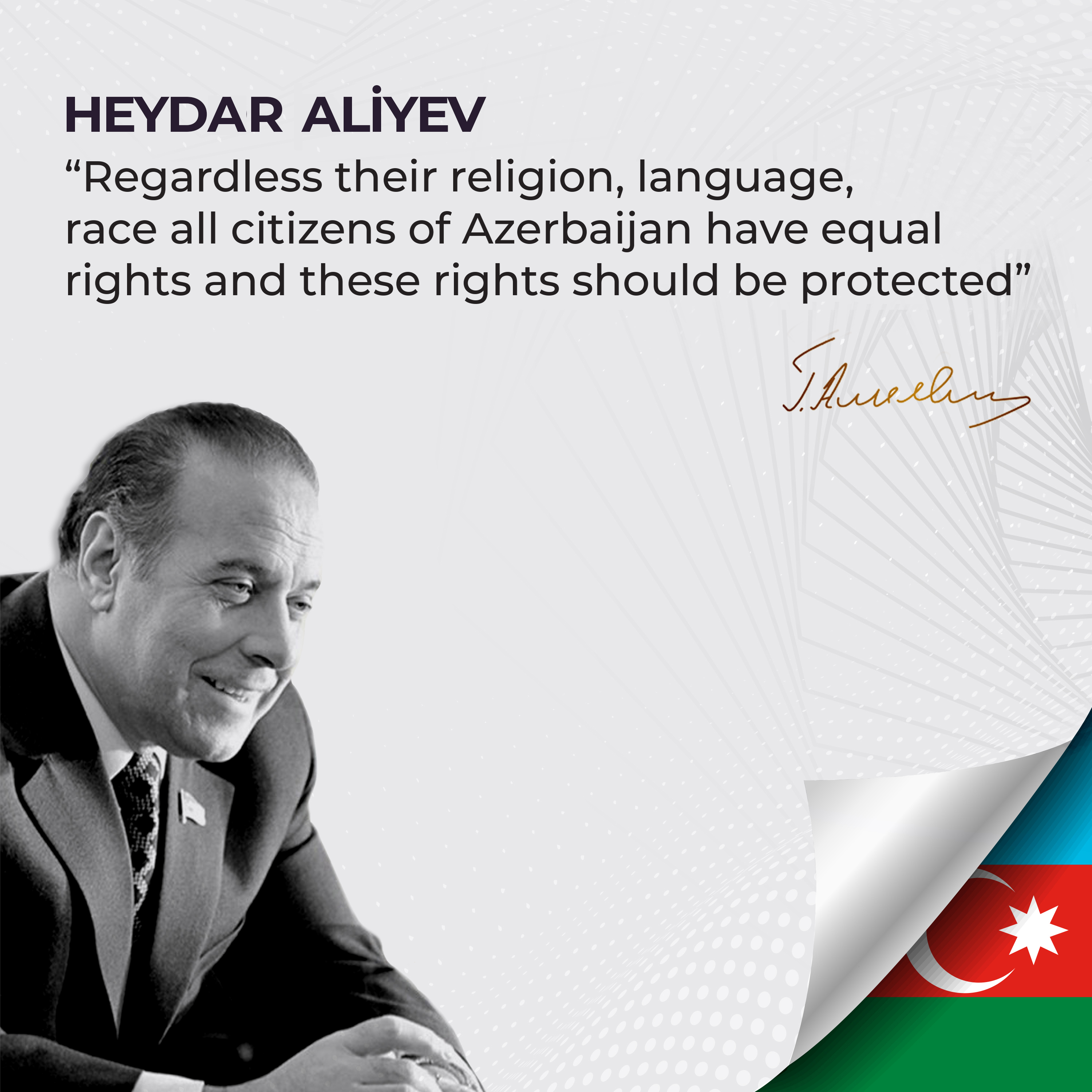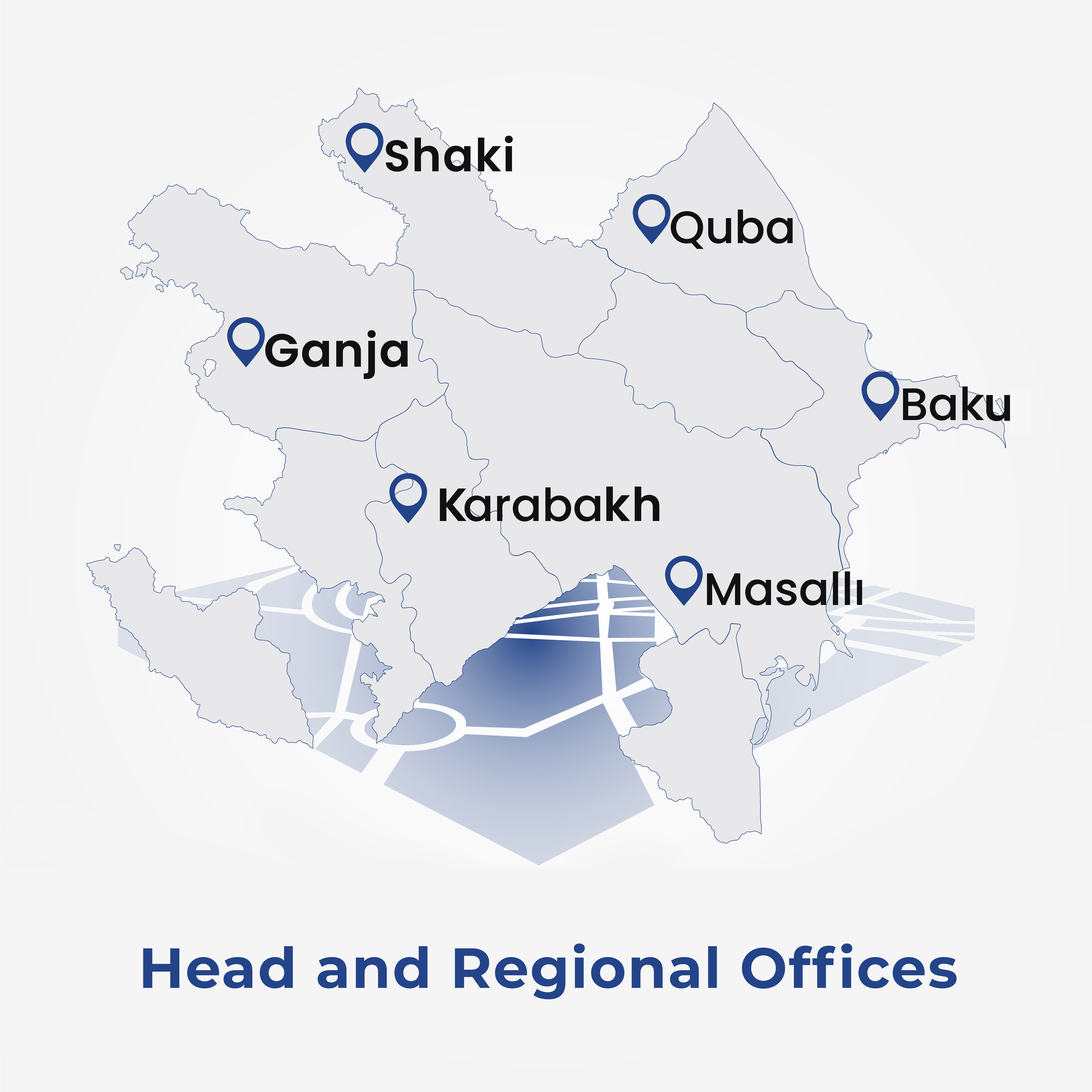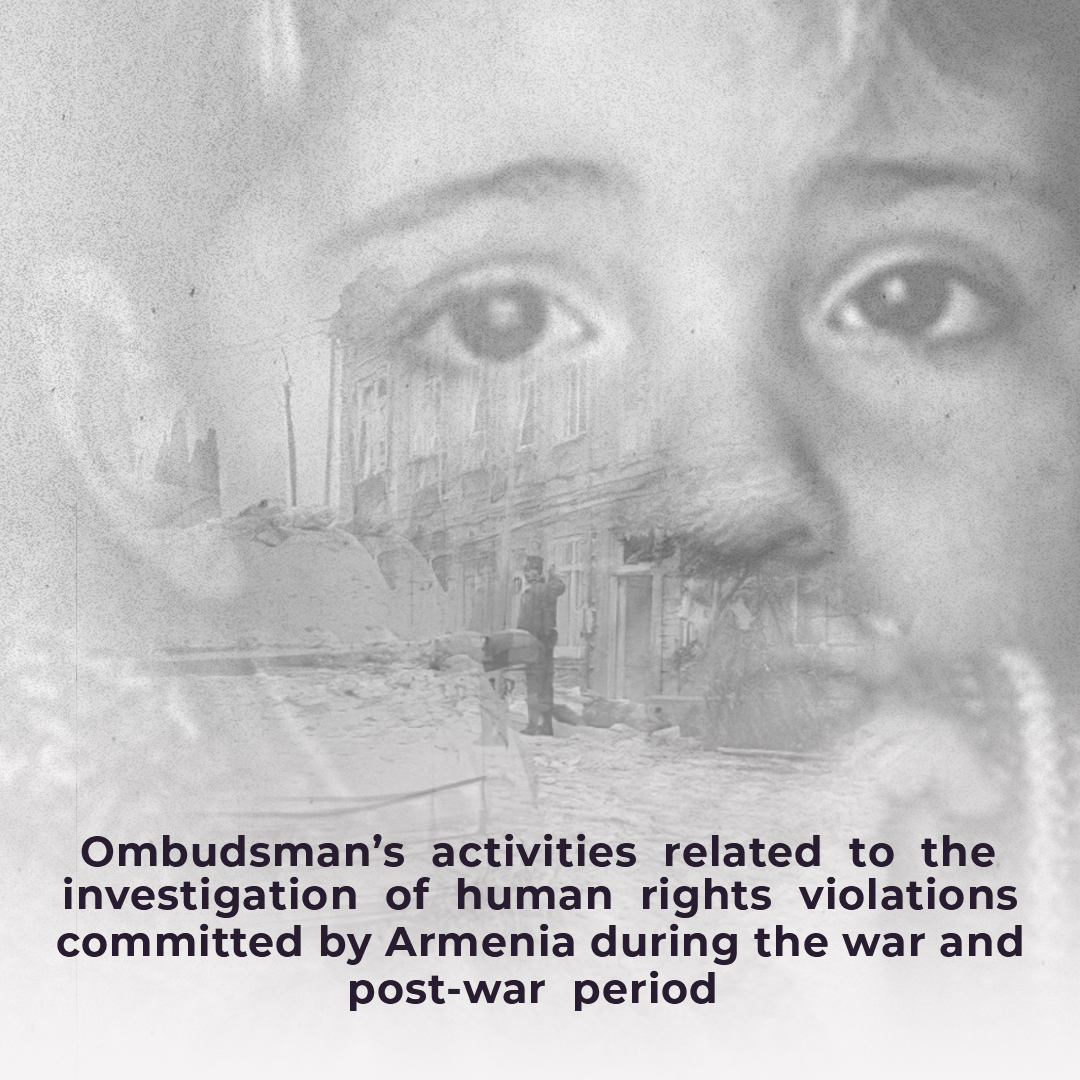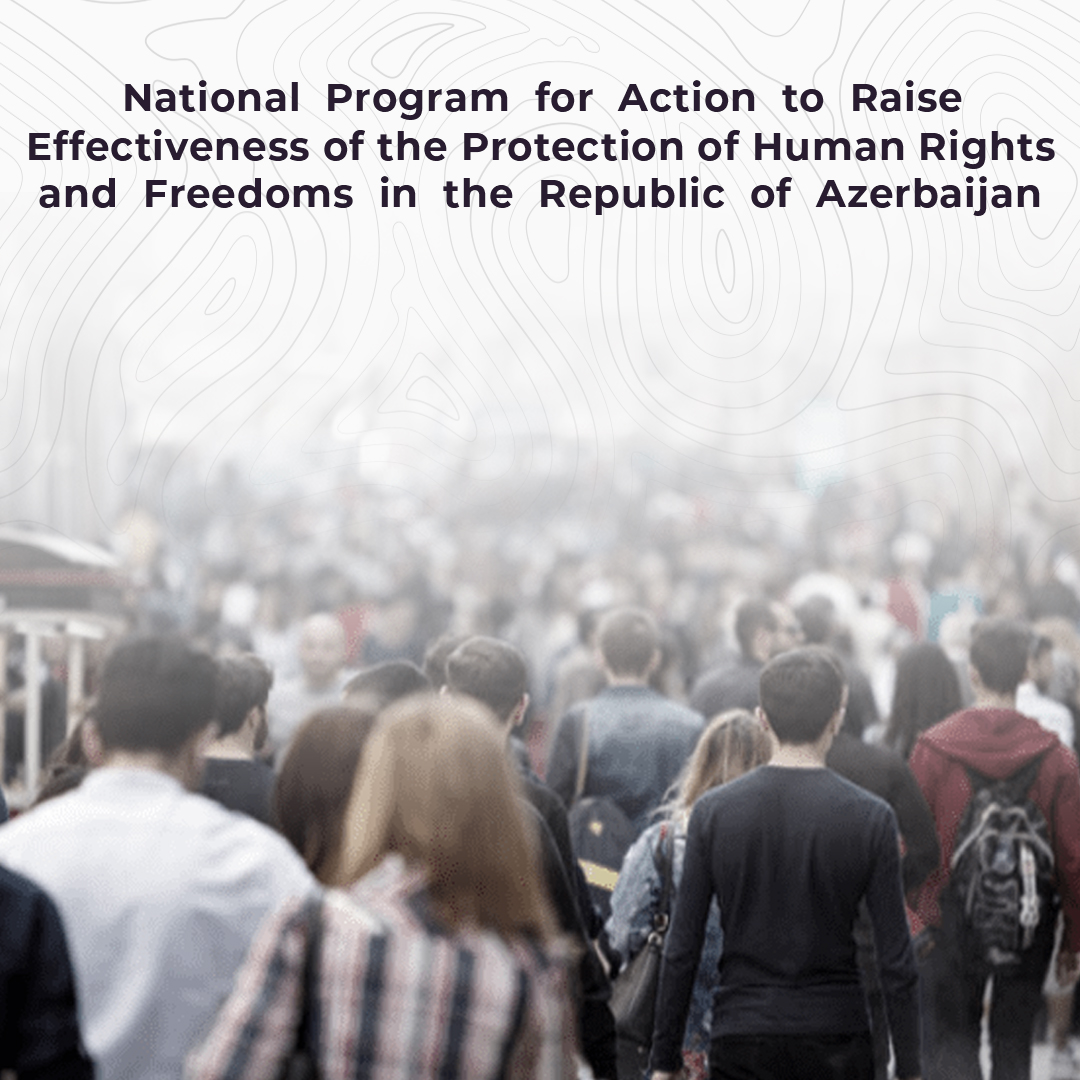
- Home page
- Commissioner
-
Activity Directions
- Mental Health and Human Rights
- Protection of the Rights of Population Groups
- Protection of the Right to Information
- Independent Monitoring Mechanism
- Legal Education
-
International Cooperation
- Cooperation with international organizations
- Cooperation with non-governmental organizations
- Study visits
- Projects
- Statements addressed to the international organizations
- “Ad hoc” reports
- Parallel and alternative reports submitted to the UN Treaty Bodies
- Oral and written statements submitted to the UN Human Rights Council
- Memorandums of cooperation
- Baku Declarations of Ombudspersons
- International Baku Forum
- Scientific Analytical Work
- Cooperation with Public and Civil Society Organizations
- Business and Human Rights
- National Preventive Mechanism Against Torture
- Protection of Human Rights
- Documents
- Media
- Live
- Contact
- Home page
- Commissioner
-
Activity Directions
- Mental Health and Human Rights
- Protection of the Rights of Population Groups
- Protection of the Right to Information
- Independent Monitoring Mechanism
- Legal Education
-
International Cooperation
- Cooperation with international organizations
- Cooperation with non-governmental organizations
- Study visits
- Projects
- Statements addressed to the international organizations
- “Ad hoc” reports
- Parallel and alternative reports submitted to the UN Treaty Bodies
- Oral and written statements submitted to the UN Human Rights Council
- Memorandums of cooperation
- Baku Declarations of Ombudspersons
- International Baku Forum
- Scientific Analytical Work
- Cooperation with Public and Civil Society Organizations
- Business and Human Rights
- National Preventive Mechanism Against Torture
- Protection of Human Rights
- Documents
- Media
- Live
- Contact
Call center
916
Statement of the Commissioner for Human Rights (Ombudsman) of the Republic of Azerbaijan Sabina Aliyeva on the Resolution adopted against Azerbaijan by the French Senate
The Resolution on “The application of sanctions against Azerbaijan and its immediate withdrawal from the territory of Armenia, the demand to comply with the ceasefire agreement dated November 9, 2020, and the promotion of all initiatives aimed at establishing sustainable peace between the two countries,” adopted by the French Senate on November 15, 2022, is a biased, untruthful, double-standard piece of paper and a clear indication of the collapse of international law, International Humanitarian Law and international human rights law in the French Republic.
The UN Charter is one of the binding documents for all UN member states, including France.
Reminding the French Senate Members of Article 2 of the UN Charter, which establishes a number of basic principles of international law, the Helsinki Final Act of 1975, and the principles enshrined in these documents, in particular, the principles of non-interference in domestic affairs, inviolability of state borders, and respect for the territorial integrity of states and fundamental human rights and freedoms, I consider that the ideas indicated in the Resolution are against the principles of international law, and they clearly demonstrate France’s biased and one-sided political position, which once again negatively affects the peace process and creates conditions for the violation of human rights and freedoms.
This kind of attitude towards our country displayed by the French government failed to express any opinion against Armenia, which held the historical lands of Azerbaijan under occupation for 30 years, is an open example of its disrespect for human rights and freedoms. As a result of acts of vandalism committed by the political-military leadership of Armenia, thousands of civilians, including a large number of children and women, lost their lives or were injured, and furthermore, a serious humanitarian crisis emerged in the region. The UN Security Council Resolutions of the Nagorno-Karabakh conflict were not implemented and simply remained on paper. Despite all this, Azerbaijan carried out activities aimed at reducing the tension with Armenia and demanded from the world community to take the right stance within the framework of international law.
The French government has not responded to the statements and appeals addressed to the international community by me as the Ombudsman of Azerbaijan, about the war crimes committed by Armenia’s military and political leadership, the continuous landmine contamination of our territories, the lack of information from Armenia about the fate of more than four thousand our missing compatriots, and other such actions that violate the universal principles of international law.
In addition, the Resolution did not take into account the facts of Armenia’s occupation of territories of Azerbaijan for nearly 30 years, the massacres committed against the civilian population, the looting of cities and villages, the brutal trampling of the rights of hundreds of thousands of internally displaced persons, the implementation of Armenia’s ethnic cleansing policy in the historical lands of Azerbaijan, the contamination of our lands with landmines during the 30-year long occupation period and after the Patriotic War in 2020.
The world has not forgotten the violence and mass cruelty committed by France against the Algerians. France waged a terrible war against the Algerian people for more than a hundred years and carried out a policy of genocide, which caused the death of 1.5 million Algerians. Regretfully, I would like to note that instead of learning from history, the members of the French Senate want to create new sources of conflict by inciting national religious enmity with this resolution.
I once again strongly condemn this Resolution of the French Senate and consider it a provocative step that will harm peace, stability, and progress in the region, and lead to the violation of human rights and freedoms.
Sabina Aliyeva
The Commissioner for Human Rights (Ombudsman)
of the Republic of Azerbaijan
16 November 2022
This Statement is addressed to the UN Secretary-General, UN Security Council, UN Office of High Commissioner for Human Rights, UN Office of High Commissioner for Refugees, UN Human Rights Council, the United Nations Children’s Fund, the United Nations Educational, Scientific and Cultural Organization, European Union, Council of Europe, Organization for Security and Co-operation in Europe, International and European Ombudsman Institutions, Asian Ombudsman Association, Organization of Islamic Cooperation and the Ombudsman Association of its member states, Independent Permanent Human Rights Commission of the Organization of Islamic Cooperation, European Network of Ombudspersons for Children, International Peace Bureau, foreign ombudsmen and national human rights institutions, embassies of the Republic of Azerbaijan and the foreign embassies in Azerbaijan, as well as to the Azerbaijani Diasporas.
- National preventive mechanism against torture
- Protection of the rights of population groups
- Protection of the rights of refugees, IDPs and migrants
- Protection of the rights of detainees and prisoners
- Protection of the rights of military servants
- Protection of women's rights and provision of gender equality
- Protection of child rights
- General
- Legal awareness
- Protection of the rights of older people
- Protection of the rights of persons with disabilities
- Cooperation with public and civil society
- National preventive mechanism against torture
- International cooperation
- Non-Governmental Organizations
- Public hearings
- Mass media
- Business and Human Rights
- Protection of the rights of martyrs' families and war veterans
- Protection of the rights of migrants
- Prevention of discrimination and ensuring equality
- Right to information
- Mental health
- .
-

- The Ombudsman participated in the International Conference on “Artificial Intelligence and Human Rights: Opportunities, Risks and Visions for a Better Future” in Qatar.
-

- The Ombudsman sent letter to UN High Commissioner for Refugees regarding protection of rights of persons deported from Armenia.
-

- A representative of the Ombudsman Office took part in an event organized by the Ministry of Energy.
-

- The Ombudsman’s representatives participated in the Pardon Decree Enforcement Ceremony.
-

- A series of legal awareness events were organized by the Ombudsman's Regional Centers.
-




